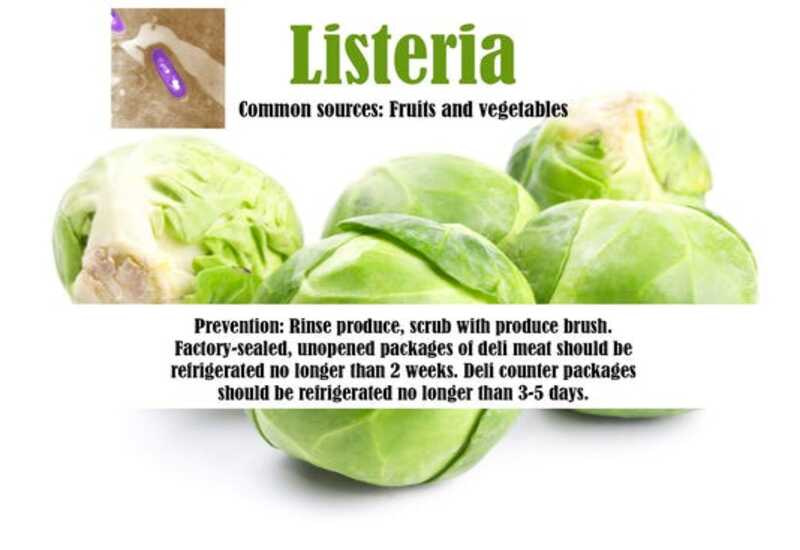Listeria monocytogenes is a type of bacteria that is found in water and soil. Vegetables can become contaminated from the soil, and animals can also be carriers. Listeria has been found in uncooked meat, uncooked vegetables, unpasteurized milk, foods made from unpasteurized milk, and processed foods.
Listeria is killed by pasteurization and cooking. There is a chance that contamination may occur in ready-to-eat foods such as hot dogs and other daily meats because contamination may occur after cooking and before packaging.
Listeriosis, conjointly referred to as true bacteria, is often a significant infection; it strikes pregnant ladies, newborns, the older, and anyone with a weakened system. Listeria is a serious infection usually caused by eating food contaminated with the bacterium Listeria monocytogenes.
In this article, Listeria cross-checks the symptoms, diagnosis, and treatment of infectious diseases. However, the bacterium works, the most effective ways in which to avoid infection, and up-to-date analysis in preventing disease.
Listeria is responsible for around 1,600 illnesses and 260 deaths in the United States yearly, exceeding the fatality rates of Salmonella and Clostridium botulinum. This rate of infection has remained relatively stable over recent years.
Fast facts on listeriosis
Here are some key points concerning infectious disease. a lot of detail and supporting data is within the main article. The following facts are included:
- Listeriosis is an infection caused by L. monocytogenes
- Calculable 260 Americans die of infectious diseases yearly.
- Only the immunological disorder and pregnant women are in danger of a significant case of infectious disease.
- Listeriosis will cause sepsis or infectious disease.
- Pregnant women are likely to be infected with true bacteria.
Symptoms
The initial symptoms of infectious disease may not be apparent for a few times; the time period is variable and can be 11-70 days intense food with true bacteria. The following symptoms of true bacteria infection seemingly to last 1-3 days:
- Muscle aches
- Fever
- Flu-like symptoms
- Nausea
- Diarrhea
- Headache
- Confusion
- Stiff neck
- Tremors and convulsions
- Loss of balance
Listeria Causes
Listeriosis is caused by true bacteria, which is unremarkably found in water, soil, and feces. Humans are infected once they consume foods that harbor the bacterium.
Adults UN agency has healthy immune systems and less in danger of infectious disease. The following is an association related to the risk of infection:
- Age over sixty-five years
- AIDS (acquired immune deficiency syndrome)
- Existing renal disorder
- Chemotherapy
- Cirrhosis
- Diabetes
- Surgical removal of the spleen
Prevention
Although the infectious disease is rare, there is a difference in the probability of becoming infected; These are especially vital throughout pregnancy:
- Cleanliness – Wash hands with heated saphenous water before making ready food. Clean utensils and work surfaces in the same manner.
- Raw vegetables – Scrub clean water with a brush.
- Cook totally – Make sure that meat and egg dishes at A food measuring system are often helpful.
- Cheese – Avoid soft cheeses as well as cheese, feta, Camembert, blue-veined cheeses, and Mexican-style cheeses like queso fresco, panela, and queso Blanco; unless the label is clearly specified.
- Meat – Avoid cold meats, especially food shop meats and hot dogs, unless boiled at an extreme temperature before uptake. Use caution to scrub something that comes into contact with raw and cold-boiled meat.
- Smoked food – Avoid cold smoke-cured food unless it’s boiled totally before consumption.
Risk factors
Pregnant girls and other people in the world who have weak immune systems are at the highest risk of getting eubacteria infection.
- Pregnant girls and their babies: Pregnant girls are more likely to be infected with infections than alternative healthy adults. Though a eubacteria infection could cause a harmless problem within the mother, consequences for the baby could include:
- Miscarriage
- Stillbirth
- Premature birth
- A probably fatal infection
2. People who have weak immune systems: This class includes folks who:
- Are older than sixty
- Have AIDS
- Are undergoing therapy
- Have a polygenic disease or renal disorder
- Take high-dose glucocorticoid gold-bound arthritis medication
- Take medications to dam rejection of a transplanted organ
Complications
Most eubacterium infections are difficult to go unheeded. However, in some cases, a eubacterium infection will result in serious complications including:
- A generalized blood infection (septicemia)
- Inflammation of the membranes and fluid encompassing the brain (meningitis)
Complications of a eubacterium infection could also be most severe for AN unhatched baby. Early in the physiological state, eubacterium infection might result in miscarriage. Later in the physiological state, a eubacterium infection may result in spontaneous abortion, premature birth, or a doubtless fatal infection within the baby’s birth.
Treatment
Treatment of correct bacteria infection varies, depending on the severity of the signs and symptoms. The general public with delicate symptoms needs no treatment. More serious infections are often treated with antibiotics
During maternity, prompt antibiotic treatment could facilitate keeping the infection from poignant the baby. Newborns WHO have a true bacteria infection could receive a mix of antibiotics.


This article is extremely enlightening and interesting.
I am very satisfied with your blog. It gives us such a lot of information.
Hi, I have just read your blog and this blog is awesome and very effective. Thank you for sharing with us.
Wow! great blog thanks for helping us just by sharing the interesting and informative blog list thanks.